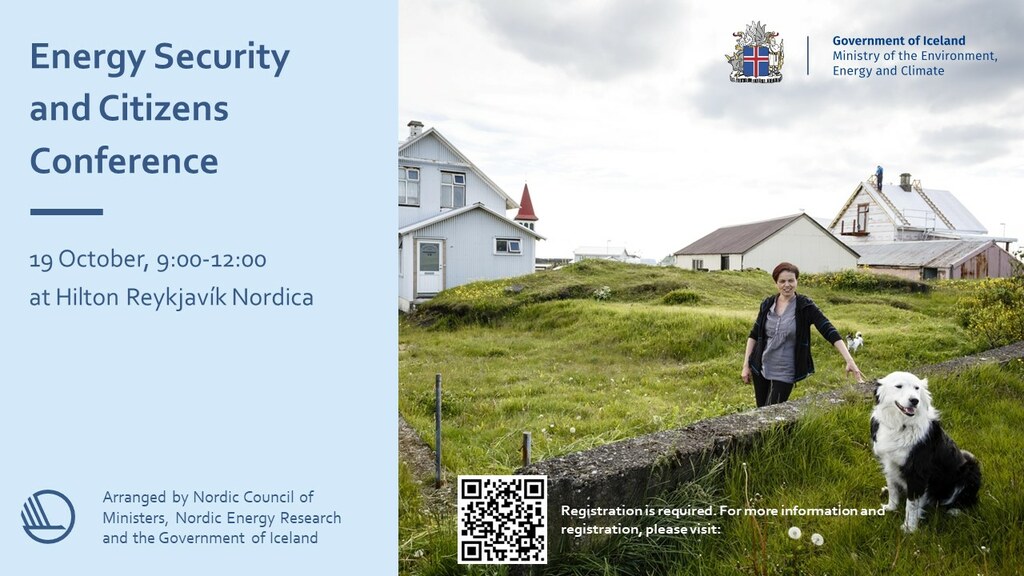
Integrated Nordic energy systems will increase energy security and self-sufficiency
The Nordic countries are experiencing an unprecedented energy crisis. The situation varies from country to country, but everywhere a new concern has risen among citizens and industry: Can we be…
The Nordic countries are experiencing an unprecedented energy crisis. The situation varies from country to country, but everywhere a new concern has risen among citizens and industry: Can we be sure to get uninterrupted supply of energy? Izabela Surwillo, Senior Researcher at Danish Institute for International Studies (DIIS), will hold a session on Energy in geopolitical security of supply perspectives at the Energy Security and Citizens Conference on 19 October in Reykjavik, Iceland. Nordic Energy Research asked her to elaborate on this engaging topic in advance of the conference.
Your session is focused on energy through perspectives of geopolitical security of supply. Why is this important for the Nordics?
The geopolitical aspect of supply security had not been a prominent concern in the Nordic region prior to the Russian invasion of Ukraine in February 2022. Consequently, this event significantly shook the perception of Russia as a collaboration partner. Projects like the Nord Stream pipelines passing through Danish and Swedish exclusive economic zones, or the nuclear power plant in Finland developed with the involvement of the Russian Rosatom, suddenly became potential vulnerabilities. It is worth noting, however, that Russia has employed energy weaponization as a strategy since the 1990s, particularly in Central and Eastern Europe. The current energy crisis has increased the awareness of European energy geopolitics in the Nordic region. Embracing this new perspective is imperative, as the region will encounter heightened security challenges concerning its energy supply and critical energy infrastructure in the future.

Izabela Surwillo, Senior Researcher at Danish Institute for International Studies (DIIS)
What are the biggest challenges that the Nordics face when it comes to energy security and supply?
Although to a varying degree, the Nordic region is highly self-sufficient when it comes to domestic power generation and its low import dependency on Russian fossil fuels has largely shielded it from the consequences of the EU energy sanctions towards Moscow. However, while the Nordic region has been a global leader in sustainable energy transition, the current geopolitical situation necessitates the acceleration of green transformation and a mass scale-up of renewable energy; wind energy holds the most potential in this geographical area. This might magnify challenges with the social acceptability of new projects in the near future, which could negatively impact the pace of their deployment and affect regional security of supply.
The Russian invasion of Ukraine and deliberate targeting of Ukrainian critical energy infrastructure have also illustrated a myriad of new high-security threats to the European energy sector. In the Nordic region, especially in the maritime zones of the North and Baltic Seas, new energy infrastructure in the form of underwater cables, pipelines or offshore wind farms can become a target of both physical and cyber-attacks.
Looking ahead, how can the Nordics work together to increase the region’s energy security and supply?
The Nordic states should continue to work together towards greater sustainability and regional integration of the energy system, as envisioned in the current 2030 targets, as this will increase regional energy security and self-sufficiency.
To adjust to the new geopolitical reality, more policy focus and resources are also needed to prepare for the new high-security challenges to energy supply routes and critical energy infrastructure. An increased regional collaboration is needed when it comes to monitoring and safeguarding key energy projects, which are often of a cross-border nature (e.g., gas pipelines and electricity cables).

The Energy Security and Cititzens Conference is arranged by Nordic Energy Research, together with the Nordic Council of Ministers and the Government of Iceland, Ministry of the Enviroment, Climate and Energy. The conference is open to the public but registration is requried.
